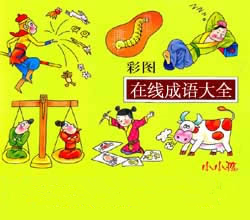英文读后感-《汤姆索亚历险记》读后感
I believe that one of the factors that makes a piece of literature or even a movie a masterpiece is how well the reader can relate to the story. This is definitely a book everyone can relate to.
The Adventures of Tom Sawyer is a literary masterpieces, written in 1876 by the famous author Mark Twain. Tom Sawyer is a mischievous young boy who lives in the small town on the Mississippi River called St. Petersburg. The story line is simple, the book reads like a biography or a memoir of a summer in Tom Sawyer's life.
Tom Sawyer seems to be the precursor of and the template for misfit kids such as Dennis the Menace, Malcolm in the Middle, and Calvin and Hobbs. What makes this story great is that Tom Sawyer represents everything that is great about childhood. The book is filled with Tom's adventures playing pirates and war with his friend Joe Harper. Tom has a trusted friend, Huck Finn, who few of the adults approve of. The book is filled with ideas of how the world works, such as how pirates and robbers work, that are so innocent, they could only come from a child. It is a story filled with action, adventure, ingenious ideas, love, and schoolyard politics. The whole story is seemingly a complication of what people did or wish they did during their childhood.
The book is a little difficult to read at first. Personally, it takes me a little while to get used to the 19th century dialect in the book. Other than referring to persons of African decent in derogatory terms (which I'm sure uses terms even young children already know), the book would be an enjoyable read for people of all ages. I highly recommend this book for anyone looking to feel young again, if just for a few hundred pages.
相关作文: 妈妈你是我的百科全书、阳台上的小鸟、飘飘洒洒的雪、关心200字、生活中的启示、学跳桑巴、参观上海航海博物馆、我真后怕、热闹非凡的亲子运动会、拔牙记热门作文成语素材
- 哀感顽艳 原意是指内容凄切,文辞华丽,使愚笨和聪慧的人同样受感动。后多用来指艳情的小说、戏曲、电影中的感人情节。
- 匪夷所思 匪:不是;夷:平常。指言谈行动离奇古怪,不是一般人根据常情所能想象的。
- 分我杯羹 羹:肉汁。楚、汉相争时,刘邦答项羽的话。比喻从别人那里分享一分利益。
- 按甲休兵 收拾起铠甲武器。比喻停止军事行动。
- 风不鸣条 和风轻拂,树枝不发出声响。比喻社会安定。
- 匪夷匪惠 夷:殷末周初的伯夷;惠:春秋时鲁国的柳下惠。既不是伯夷,又不是柳下惠;不具备这两位贤人的品德。形容才德不高而又驾驭的人。
- 分茅裂土 原指古代帝王分封诸侯时举行的仪式。后称分封诸侯。
- 拔犀擢象 擢:提升。比喻提拔才能出众的人。
- 诽誉在俗 诽:指诽谤;誉:赞扬;俗:风气、习惯。诽谤或赞扬在于当时的风习。后来引申指风气、习惯的作用非常大。
- 挨肩擦背 形容人多拥挤。
- 飞黄腾达 飞黄:传说中神马名;腾达:上升,引伸为发迹,宦途得意。形容骏马奔腾飞驰。比喻骤然得志,官职升得很快。
- 薄寒中人 薄寒:轻微的寒气。中人:伤人。指轻微的寒气也能伤害人的身体。也比喻人在衰老或患难之中时经不住轻微的打击。
- 补阙灯檠 阙:缺;灯檠:灯架。没有灯架,用人充作灯架。旧时讽刺男人惧内。
- 肥马轻裘 裘:皮衣。骑肥壮的马,穿轻暖的皮衣。形容阔绰。
- 不伏烧埋 伏:屈服;烧埋:烧埋银钱,旧时官府向杀人犯追缴赔给死者家属的埋葬费。比喻不伏罪或不听劝解。
